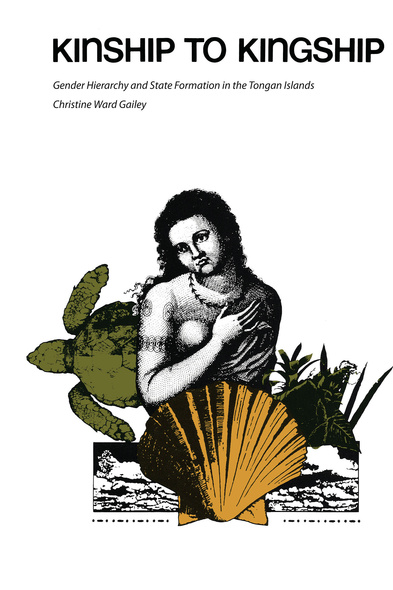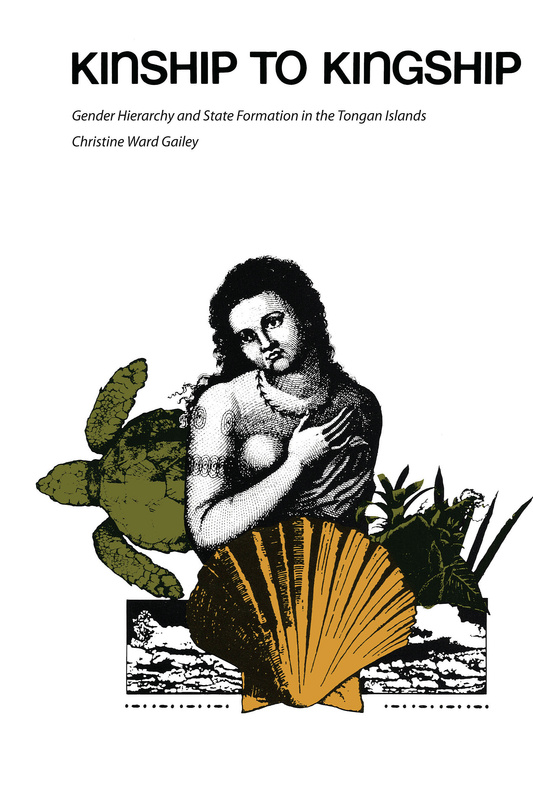Kinship to Kingship
Gender Hierarchy and State Formation in the Tongan Islands
Have women always been subordinated? If not, why and how did women’s subordination develop? Kinship to Kingship was the first book to examine in detail how and why gender relations become skewed when classes and the state emerge in a society.
Using a Marxist-feminist approach, Christine Ward Gailey analyzes women’s status in one society over three hundred years, from a period when kinship relations organized property, work, distribution, consumption, and reproduction to a class-based state society. Although this study focuses on one group of islands, Tonga, in the South Pacific, the author discusses processes that can be seen through the neocolonial world.
This ethnohistorical study argues that evolution from a kin-based society to one organized along class lines necessarily entails the subordination of women. And the opposite is also held to be true: state and class formation cannot be understood without analyzing gender and the status of women. Of interest to students of anthropology, political science, sociology, and women’s studies, this work is a major contribution to social history.
- Acknowledgments
- Introduction
- Part One: The Quest for Origins
- 1. The Subordination of Women: Gender in Transitions from Kinship to Class
- 2. State Formation
- Part Two: Gender and Kinship Relations in Precontact Tonga
- 3. Authority and Ambiguity: Rethinking Tongan Kinship
- 4. The Reproduction of Ambiguity: Succession Disputes, Marriage Patterns, and Foreigners
- 5. Division of Labor
- 6. Exchange and Value
- 7. Gender Relations at Contact
- Part Three: Conversion, Commodities, and State Formation
- 8. Early Contact
- 9. Missionaries: The Crusade for Christian Civilization
- 10. A Native Kingdom: Creating Class and Gender Stratification
- 11. Changing Production: Commodities, Tribute, and Forced Labor
- 12. Dialectics of Class and State Formation
- Appendix: Sources and Methods
- Notes
- Glossary
- References
- Index





